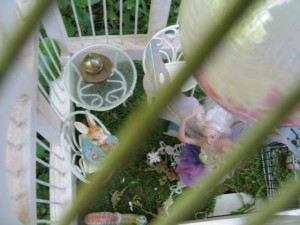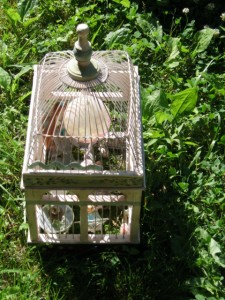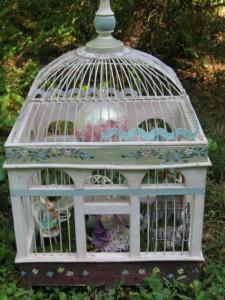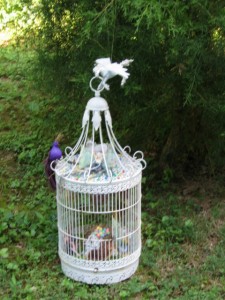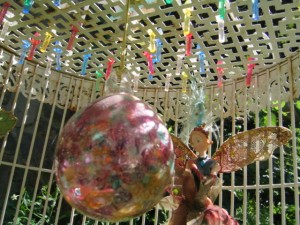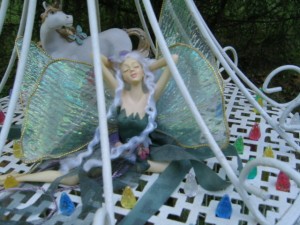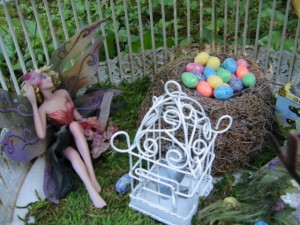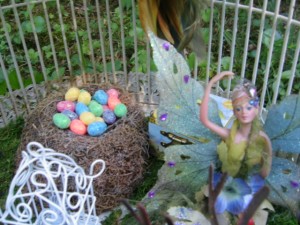Death and The In-Between Place (Book News and Life Musings)
“Dying is easy. Separation is the hard part.” -Jeanne Walker in Always, Karen: More Alive than Ever
Considering I live in one of the wealthiest and most medically advanced societies on the planet where some people my age still have surviving grandparents, I’ve experienced a lot of death in my 36 years. I only knew one of my grandparents, my grandma Beabo, who passed when I was in high school. Then a friend died in a fire. Then several of my mentors succumbed to various diseases. Then I lost my mother to cancer in 2005, my father to a sequence of medical catastrophes in 2008. Somewhere in there, I also lost a sibling, not to physical but to emotional death. And now, just in the last year and a half, my aunt and a cousin in Norway died, two writer friends passed away, my surrogate aunt (Mom’s best friend from high school) is no longer with us, and a dear co-worker went in for surgery and never woke up. And of course, many pets–those of you who have read Across the Summer Sea likely saw my dedication to Maddie and Target, both lost in 2014 and sorely missed here, as well as all the furry friends who came before them.
I hope you’re still reading after the above paragraph. I don’t mean it to be depressing–I don’t particularly find it so myself. Of course, I’m sad, reading over that list, but as I’ve had occasion to realize, sadness and depression are not the same thing. Missing someone, feeling grief when he or she is no longer with you, is the price we pay for love, and I have no regrets about the love I still feel for everyone on the above list. No, the reason I shared my experiences with death wasn’t to depress you. It was to give you some idea of where I’m coming from with my writing.
Death in fantasy fiction–oh, where do I start? So, if you’ve been reading The Landers Saga and now The Phoenix Realm, you may have noticed I, like every writer, have certain subjects I explore again and again. I guess you would call them themes, although that seems like a bit of a highfalutin word. Obsessions might be closer to the truth. One of these is the idea of death being a temporary separation rather than a permanent end. Another is the idea that we living folks exist at a particular level of space-time, while those who have died have evolved to another level where they’re not as limited by the physical realm. As Merius recalls in The Curious Fear of High and Lonely Places: “The eternal sits at the center of the circle of time and observes the whole circle at once, while we travel face backwards around the outside of the circle and can only see to the curve just behind us. And if we could sit where the eternal sits, our heads would explode from the pressure of all that knowledge . . .”
I strive for a lot of things in my work, the main being a sense of hope in the face of tragedy. My wish is that I can pass this hope along to my readers with big dollops of romance, drama, mysticism, and comedy. And fantasy. I’ve found fantasy the best way for me to convey certain ideas, particularly ideas about death. Gritty reality is fine to a point, but it doesn’t capture the breadth of my experiences, particularly some of the experiences my mother and I shared the last year of her life and in the days following her death. As I’ve written before in this blog, my mother was a bit spooky, and things happened that terrible, wonderful year which defy explanation, things which give me hope I’ll see her–and everyone else I love–again, things which make me believe the “reality” that surrounds us is merely the surface of something far, far more.
Fantasy allows me to paint on a larger canvas with more colors than other genres would. In a fantasy story, I can show an archetype in both a figurative and a literal sense, play around with it in a way that’s impossible in realistic fiction. I can write about a mostly ordinary family with the normal sorts of domestic comedies and upsets (children rebelling against their parents, spouses alternately irritating and amusing each other, fights at the dinner table) and then twist that to transform some of the members into witches and mermaids, immortal birds and ghosts. How does it change the family dynamics when one of your children is a bird? When your wife is a mermaid sometimes? It entertains me to write this way. Not only that, it takes a little of the sting out of what has sometimes been an unbearable personal reality and gives me the chance to explore certain issues–psychological pain, spiritual transformation, death, to name a few–from a fresh perspective.
All this introduction to announce that I finally have the title for the novel I’m currently working on: The In-Between Place (Book Three of the Phoenix Realm). I had about twenty ideas for the title, some of them rather flowery–likely inspired by the addition of a new voice/character point of view in this latest book. I wasn’t going to add another point of view character, but he’s quite a talker, this new voice, given to verbal flights of fancy, and he wouldn’t shut up. So I added him to the mix–we’ll see how it goes. So far it’s been a lot of fun 😉
Many sources have inspired my writing over the years, too many to name (or even know) but the following have had the biggest impact on my ideas about life, death, immortality, and eternity: the philosopher Boethius, Einstein’s theories, God at the Speed of Light by T. Lee Baumann, Always, Karen: More Alive than Ever by Jeanne Walker, and various passages from the Bible, specifically the Gospel of John and First Corinthians 13.
© 2015
Read More
